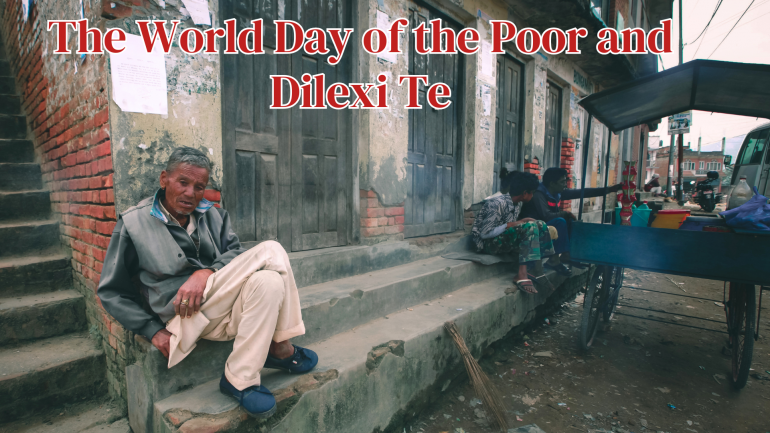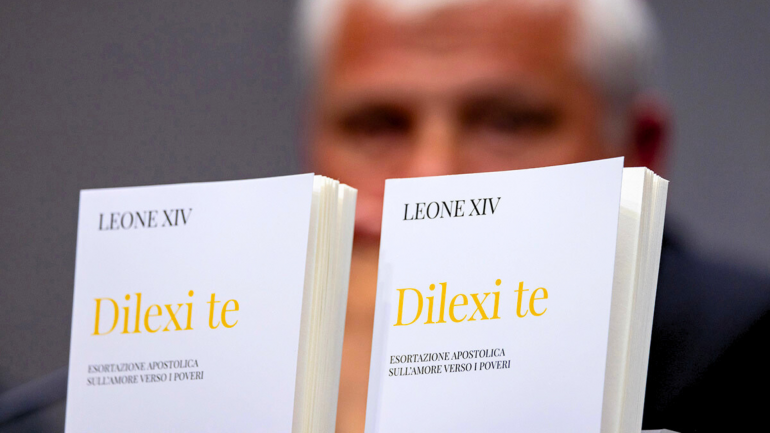The World Day of the Poor and Dilexi Te

Join the observance on November 16, 2025, as the Mother Church celebrates the 9th World Day of the Poor, a powerful call to action from Pope Leo. Launched in 2017 through the Apostolic Letter Misericordia et Misera, this special day aims to shed light on the many faces of poverty. Observed on the 33rd Sunday of Ordinary Time by the Catholic Church, it urges Christian communities to embody Christ’s charity. This year’s theme, “You are my hope” (Ps 71:5), invites us all to reflect on our role in serving those in need.
“You Are My Hope”
“You, O Lord, are my hope” (Ps 71:5)! These powerful words resonate from a heart forged in trials, steadfast in faith. When the Psalmist faces overwhelming suffering, he finds solace in God, “a rock of refuge, a strong fortress” (v. 3). This hope, as Pope Leo XIV reminds us on the World Day of the Poor, isn’t just wishful thinking; it’s a solid assurance rooted in God’s unwavering love, poured into our hearts by the Holy Spirit (Rom 5:5). As we embrace the Jubilee Year of Hope, this message rings louder than ever! As emphasised in Dilexi Te, the Christian journey springs from an encounter with a Love that envelops us and gives us strength. Hope isn’t simply a feeling; it’s a dynamic force that transforms despair into compassion and loneliness into a sense of community. In this light, the poor shine as true icons of hope. Stripped of worldly comforts, they lean on the One who never lets us down!
Poverty: It’s Not Just About Empty Pockets, But Empty Hearts!
The Holy Father stresses that the deepest poverty isn’t found in empty pockets, but in the heart. The gravest form of poverty is “not to know God.” Hence, poverty is not only material. The gravest form of poverty, Pope Leo XIV warns, is to live without God. In Evangelii Gaudium, Pope Francis called this “the worst discrimination which the poor suffer”, the denial of spiritual care. The Message emphasises this profound need for God, citing St Augustine, who warned that relying on anything else will only “make you all the more empty.” The poor possess a deep openness to faith, and the Church must never fail to offer them God’s Word, His blessing, and the sacraments that sustain them. As Dilexi Te reminds us, love that flows from the heart of Christ cannot remain abstract; it must touch human wounds, restore dignity, and rekindle hope. Without God, possessions leave us emptier.

Hope Must Take Flesh
Hope, then, is not passive waiting; it is a dynamic certainty grounded in God’s promise. When faith gives birth to hope, and hope flowers in charity, hearts become fertile ground where love can blossom for the life of the world. Charity, therefore, is the concrete face of hope. It is, as the Catechism teaches, “the greatest social commandment”. Hope must take flesh in responsibility by addressing the structural causes of poverty, promoting justice, and building communities where no one is left behind. History reminds us that hospitals, schools, and homes for the poor were born from Christian charity, where compassion triumphs over indifference. Each act of mercy, however small, becomes a luminous sign of God’s love in the world.
From Handout to Hard Justice
The poor are not a distraction for the Church; they are her heart. The World Day of the Poor, celebrated at the close of this Jubilee year of Hope, is not a passing observance but a call to conversion. The poor are not merely recipients of aid; they are creative protagonists of renewal who teach us the Gospel of humility and hope. In a world shaken by wars, inequality, and ecological crises, the Church is called to renew her commitment to justice. Helping the poor is not an optional charity; it is an act of justice flowing from God’s design that all share in the goods of creation. Helping the poor is a matter of justice before a question of charity. As St. Augustine observed: “You give bread to a hungry person; but it would be better if none were hungry, so that you would have no need to give it away. You clothe the naked, but would that all were clothed and that there be no need for supply this lack” The Holy Father insists that helping the poor is fundamentally a matter of structural justice.










- Reply
Permalink